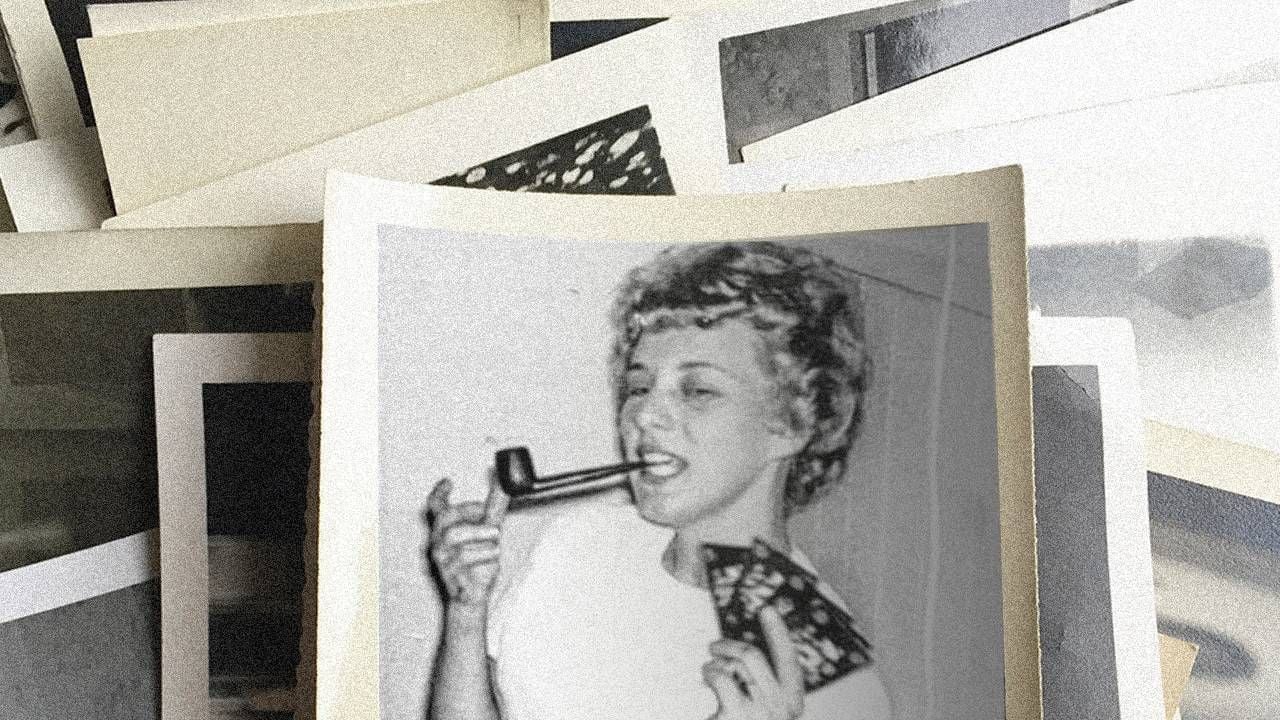Quirky Obituary Shines a Spotlight on Changing Trends
During the pandemic, obituaries have become a more significant part of the grieving process
As obituary writer Margalit Fox said in the 2016 documentary "Obit," about The New York Times obituaries section, "Obits have next to nothing to do with death, and, in fact, absolutely everything to do with life."

Michael de Adder, 53, heartily agrees. The quirky, often humorous, obituary he wrote in January 2021 to celebrate his mother Marilyn's life went viral. And it's a far cry from what you probably think of in a traditional obituary, which typically reads like a summary of life's milestone events: birth, schooling, work, marriage, family and death.
You can read de Adder's Chronicle Herald (from Nova Scotia, Canada) obituary here, but this excerpt gives you a taste:
"Marilyn loved all children who weren't her own and loved her own children relative to how clean-shaven they were. She excelled at giving the finger, taking no sh*t and laughing at jokes, preferably in the shade of blue. She did not excel at suffering fools, hiding her disdain, and putting her car in reverse."
The Trend Towards Less Traditional Obituaries
While de Adder's obituary is unique, in recent years, some obituaries about public figures as well as ordinary folks have been less than traditional.
In order to write beyond the obvious, family members and even those who've written their own obituaries, often include humor. Here are some excerpts from a roundup of funny obituaries on Reader's Digest online:
In order to write beyond the obvious, family members and even those who've written their own obituaries, often include humor.
"Take magazines you've already read to your doctor's office. Do not tear off the mailing label 'because if someone wants to contact me, that would be nice.'"
"It pains me to admit it, but apparently I have passed away."
"She wants her gold teeth back from the dentist that yanked them — those were HERS to keep."
Occasionally, an obituary will include a political rant:
"Faced with the prospect of voting for either Donald Trump or Hillary Clinton, Mary Anne chose to pass into the eternal love of God."
Some obituary writers write brutally honest, painful accounts of the deceased. You can read more here, but this excerpt gives you an idea:
"Leslie's hobbies included being abusive to his family, expediting trips to heaven for the beloved family pets and fishing, which he was less skilled with than the previously mentioned. Leslie's life served no other obvious purpose, he did not contribute to society or serve his community and he possessed no redeeming qualities besides quick whited [sic] sarcasm which was amusing during his sober days."
Finally, some self-written obituaries allow for freedom to reveal something private, such as when astronaut Sally Ride used a statement prepared before her death from pancreatic cancer to acknowledge that she was a lesbian, and survived by "her partner of 27 years."
The Importance of Obituaries During COVID-19
Of his mother's creative obituary, de Adder says, "This obituary wasn't just a death notice -- it was the funeral, the wake, the only thing my mother was going to get until COVID was over."
"My mother wanted an Irish wake," he adds. "I couldn't give her that due to COVID-19, but I gave her an Irish wake in an obituary."
While the pandemic has made it difficult or impossible to get together for funerals, wakes, shivas and other gatherings, "families are also disrupted from the grieving process when they can't visit sick loved ones in nursing homes and hospitals," says Brandy Skidmore, a psychotherapist in Lafayette, La.
"Obituaries can be a benefit to the grieving process, to provide closure for families and loved ones," she says.
Further, Glenn Rifkin, an obituary writer for The New York TImes, noted that writing about ordinary people who died during the pandemic has helped honor individual lives during a time when the sheer volume of deaths is the big news story. (See the Next Avenue article about the Times' pandemic obituary series, "Writing the Poignant New York Times COVID-19 Obituaries.")
How to Write a Great Obituary
Recalling his mom's obituary, de Adder says: "The funeral home asked for an obituary ASAP. I said I wanted to write it, and my brothers agreed." The night before it was due, he and his two brothers were sharing stories about their mom. When de Adder sat down to write the obituary the next morning, he didn't want to write the typical "stale, kind of dry," obituary he had found in his research. Instead, de Adder spent four hours writing one that was a celebration of his mother's life.
"Obituaries can be a benefit to the grieving process, to provide closure for families and loved ones."
He admits that he "wrote the obituary as a first draft to entertain" his brothers. But they all liked it, and wanted it to be published as it was written.
Alternately amused by de Adder's obituary and pulling your hair out thinking you'd never be able to write anything like this? Take heart. As a political cartoonist, de Adder told me that the only kind of writing he can do is funny.
If you want to take a stab at writing an interesting or humorous obituary, consider gathering all the basic information together, and adding more colorful details.
In her blog post, "Anatomy of a Great Obit," obituary writer Jamie Passaro shares tips, including using imperfections and contradictions, humor, quotes and more. Most obituaries she writes are around 800 words, and she is a member of the Society of Professional Obituary Writers.
Passaro can be hired; her basic package is $400, but she also works with clients on obits and eulogies at an hourly rate. Since the coronavirus outbreak, Passaro has seen an uptick in sales of her $4.99 ebook, "How to Write Your Own Obituary."
Says Passaro, "COVID has led some people to be more reflective and to think about what they want in terms of death care, memorials and their digital legacies. One way to do that is by writing their own obits, including information about their wishes."
Here are a few additional obit writing tips:
- Choose a writing tone based on the person. “The best obituaries reflect the personality of the person who died,” says Passaro. If someone is a serious person, a more traditional obituary may be the right choice.
- Plan ahead, if possible. Make obituaries part of death pre-planning. “In addition to funeral and burial arrangements, ask your loved ones how they want to be remembered,” says Skidmore. Not only will this make the obituary more meaningful, but “it’s really hard to write an obituary when someone has just passed away and you’re grieving.”
- Include what future descendants would want to know. “An obituary may be the last thing written about someone,” says de Adder. “Three hundred years from now someone may not care what your loved ones did for a living, but they will want to know about them as people.”


